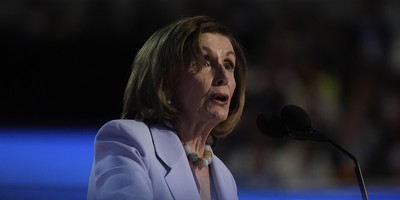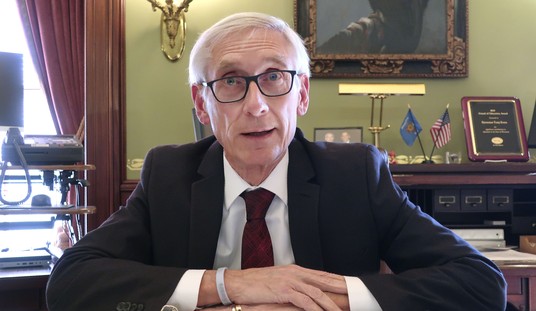Advertisement
The Board’s position was put forward by Acting General Counsel Lafe Solomon in a disturbing brief to the Fourth Circuit. It was filed to defend the Obama Board’s highly controversial decision, Specialty Healthcare, which jettisoned 76 years of Board law. The decision authorized unions in all industries over which the Board has jurisdiction to represent bargaining units of as few as two or more employees doing the same job in the same location. Why do unions want these small units? Because, among other things, they are easier to organize.
The Board’s decision threatens an undue proliferation of bargaining units, which Congress, state labor boards and other nations have warned about for years.
The Board Has Always Resisted “Undue Proliferation”
Since its inception in 1936, the NLRB has recognized that an undue proliferation of bargaining units causes unnecessary work stoppages and is inconsistent with the long-term goals of collective bargaining. Therefore, the Board has favored larger units and sought to avoid a multiplicity of smaller units. During Senate debate in 1974 on extending the Board’s jurisdiction to cover non-profit health care institutions, committee Chairman Senator Harrison A. Williams (D-NJ), no stranger to Board law, recognized this fact. He applauded the NLRB and said that as a rule it has “generally tended to avoid the unnecessary proliferation of bargaining units.”
Recommended
Advertisement
The Board’s efforts in this regard were also clear in 1989 when it proposed adopting a rule that would make a single facility unit presumptively appropriate. In its Notice of Proposed Rulemaking, the NLRB said that the employees’ desire for a single facility unit (as opposed to the employer’s desire for a multi-facility unit) “might be outweighed by concerns over disproportionate, unjustified costs and undue proliferation of units.”
Congress Has Expressly Warned The Board About Undue Proliferation
Congress has consistently taken a position against undue proliferation. During the debates over expanding the Board’s jurisdiction to include non-profit health care institutions, Congress expressly cautioned the NLRB against an undue proliferation of bargaining units that would cause unnecessary work stoppages and threaten patient care. In its brief, the Board draws from this caution the preposterous conclusion that a multiplicity of bargaining units in all other industries is an “irrelevant” consideration under U.S. labor law.
Congress’s admonition to the Board cannot be minimized so easily. Non-profit health care institutions were exempted from the National Labor Relations Act’s (“Act”) coverage by the Taft-Hartley amendments of 1947. Archibald Cox, former Solicitor of Labor and Harvard Law professor, observed that Taft-Hartley was passed because “the public was worried about the power of unions” and “many saw the danger of work stoppages as a threat to our social system.” It stands to reason that when Congress was considering bringing non-profit hospitals back under the Act’s coverage, it would caution the NLRB to avoid an undue proliferation of bargaining units in that industry.
Advertisement
Nowhere is there any suggestion that Congress was giving a green light to an undue proliferation of bargaining units in other industries.
Undue Proliferation Of Bargaining Units Is A Common Concern
The pre-Obama Board did not stand alone in its concern over micro-unions: labor boards generally recognize its dangers and seek to avoid it. For example, the Illinois Education Labor Board requires that educational units be established “only if they do not” cause an undue proliferation of bargaining units which “means the number of bargaining units is such as to threaten to interrupt services, cause labor instability and … continual collective bargaining.”
And the labor boards of Canada are in accord. For example, the Ontario Labor Relations Board (OLRB) has said that the “proliferation of bargaining units is not normally conducive to collective bargaining stability.” General Electric Co, Ontario Labor Relations Board 1979.
In Kidd Creek Mines Ltd, 1984, the OLRB detailed the reasons why:
“A proliferation of small units may result in unnecessary work stoppages … Each of several units becomes its own seniority district, enclosed by walls which impede the movement of employees between jobs … A multiplicity of bargaining units also inevitably spawns jurisdictional disputes over the assignment of work and entails the costs [to employers] of negotiating and applying several collective agreements. Finally, the existence of a single bargaining unit facilitates equitable treatment of employees doing similar jobs.”
Advertisement
Voting For The Next Members Of The NLRB
The political leadership at the NLRB reflects the priorities of the President who appointed it. The same Acting General Counsel whose office authored this brief filed suit to stop The Boeing Company from building new Dreamliner aircraft in the $1 billion plant Boeing built for that purpose in South Carolina. And the same NLRB that authorized micro-unions has issued decision after decision that have radically changed Board law to benefit unions without regard for their impact on workers and businesses. All of this has created uncertainty and contributed to a chill on job creation.
























Join the conversation as a VIP Member